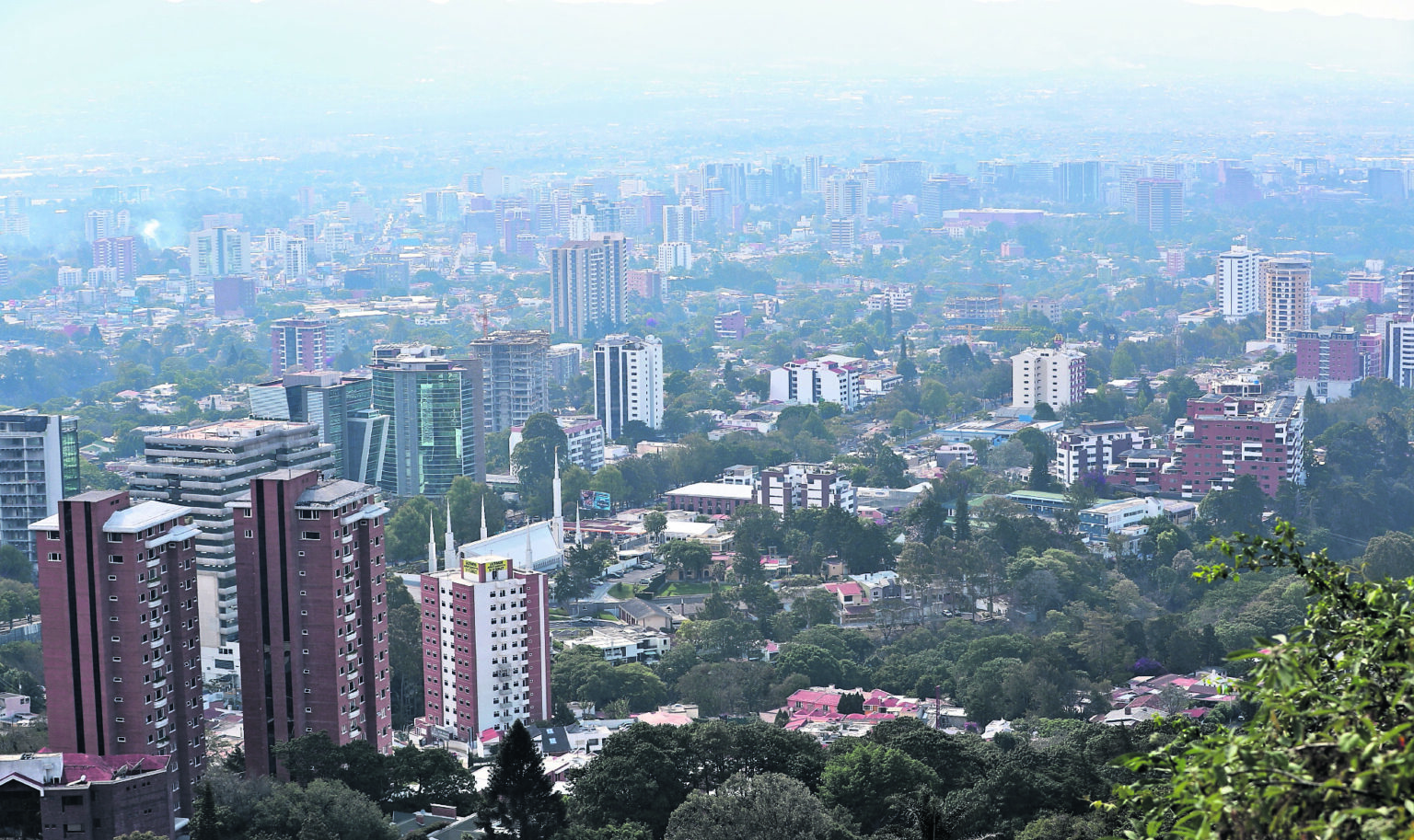Global Courant 2023-05-26 16:00:58
Last Wednesday, May 24, the International Monetary Fund (IMF) released an extensive report with the final conclusions of the annual macroeconomic evaluation called Chapter IV.
Prensa Libre consulted three specialists who analyzed part of the report, its comparison with the national reality and the high relationship with the United States, especially in terms of remittances and foreign trade. In addition, some warnings are issued that the US economy could enter into a possible slowdown, which would affect Guatemala.
The experts consulted agreed that the national economy is conservative and part of its stability is the result of the implementation of various measures that have allowed economic growth, even if it is moderate, but guidelines must also be drawn up to improve the economic development of the entire population. .
Hugo Maul/Analyst at the Center for National Economic Research (Cien)
What do you think about the conclusions of Chapter IV of the IMF for Guatemala?
It is a moderate and balanced reading of what is happening in macroeconomic terms; the strengths are highlighted and the medium-term weaknesses are pointed out. There stands out the importance of improving all the mechanisms related to public administration, the effectiveness of the government and the importance of having infrastructure, as well as achieving fiscal consolidation, in view of the country’s spending needs. It is also recommended to continue advancing in the fight against corruption.
It seems to me that it highlights the positive aspects of the country and how strengthened it is after the pandemic, but it does mark important points in the medium term that, if not resolved, compromise the possibilities of growth in the long and medium term and for this reason include a section on reforms on the supply side, which is to emphasize the need for economic growth and long-term development, since macroeconomic stability is not enough to achieve it.
This evaluation is almost the same as what they have done in other years, but we also know what they are doing and it is to verify if there is the capacity to pay the debt and, of course, they try to disguise the issues to say that they are also concerned about economic development and social. But in reality they are interested in the fiscal balance, the consistency of the fiscal-monetary and financial policy; And in this sense, the country is in a very similar situation to before the pandemic, with a solid macroeconomy but it is not having the drive to solve the problems derived from the lack of development.
In your opinion, does the report reflect the reality of the economy?
It must be understood that these documents are ultra-specific in fiscal, tax and financial matters, and then important aspects are highlighted such as the International Monetary Reserves (IMR) and the solidity that this provides; it is mentioned that this solidity is derived from family remittances; and that the banking system is solid.
It is a good x-ray of what is happening and urges further progress in prudential supervision and strengthening the process of regulation and bank capitalization; but there is also talk of the great lags and challenges in social matters. All this is conditioned to what can happen in the United States.
Where I differ is that they make a very strong exhortation to the central bank to continue using the leading interest rate so that inflation converges to the average target. What has already been done in terms of interest rate increases is enough and time should be given, since they have not yet seen what is happening with inflation.
The report highlights the possible slowdown in the United States economy and its eventual impact on remittances and trade
It is a part of the report because if they condition their scenarios to the fact that a recession in the US does not materialize. What has happened there is that the US economy has been defying the expectations that were held and everyone expected that with the increase in rates interest rates will cool down the economy, unemployment will begin to rise a little and consumption will moderate. But in reality, despite interest rate increases, employment continues to grow and the economy is showing strength. But it’s still a valid risk.
Paul Boteo/Executive Director of the Freedom and Development Foundation
What do you think about the conclusions of Chapter IV of the IMF for Guatemala?
Guatemala has positioned itself in Latin America as a fairly resilient country with a very conservative fiscal policy, which has made it possible to navigate international crises in an acceptable way, when compared to the high volatility in other neighboring countries.
Of course, the report points out that our great buffer is the inflow of family remittances, which continue to grow unstoppably, not only nominally, but it is confirmed that they are growing more than the economy, because they are increasingly having a greater weight, and not one could understand all the resilience that has been had, even in the stability of the exchange rate in the last 20 years, without resorting to these transfers.
There is the merit of having maintained for more than three decades, a fiscal discipline that has helped and although there are fiscal deficits, they are moderate and that allows at this moment to have a debt/GDP ratio that is one of the most manageable and conservative in the Americas. Latina. In terms of monetary policy we have also been conservative.
So, the sum of this macroeconomic prudence and remittances is what allows this recognition, in comparison with Latin America.
In your opinion, does the report reflect the reality of the economy?
I think so because, in addition, it states that it has a stable economy, but it also points out the weak points, so it not only remains as a congratulation, but it also urges that work can be done in the long term.
The first point is that the IMF points out that economic growth is stable but insufficient to solve the big problems and encourages to increase the potential growth of the national economy with a series of reforms tending to encourage public and private investment.
There is also a call for a fiscal policy that responds to social realities in terms of human capital formation, health and education, but one of the great issues is governability. We must create credible institutions that provide legal certainty so that more companies can be attracted and set up.
For this reason, I believe that the exercise is quite valuable, because it does not stop at congratulations for the stability demonstrated in recent years, but also points out that, at the rates of growth and with the current state of investment, savings and all the determining variables of economic growth, we are not going out.
The report highlights the possible slowdown in the United States economy and its eventual impact on remittances and trade
For the rest of the year, I don’t see a very strong impact. And if there is finally a crisis in the United States, it would be entering gradually and very slowly. A slowdown is being observed in that economy as at a moment of impasse where worrisome variables can be perceived, since the yield curve has been inverted for several months.
We see problems in their financial system and many families are going through difficult times due to the rise in interest rates, which limits their consumption possibilities. But still, the economy is pretty resilient.
The outlook for 2023 is that we are not going to see a strong effect on the national economy, derived from what is happening in the United States. In any case, the climate of uncertainty is being postponed to 2024 because it seems that there could be a greater crisis at the end of 2023.
Víctor Mancilla/Former Superintendent of Banks (SIB)
What do you think about the conclusions of Chapter IV of the IMF for Guatemala?
The country has shown resilience to these international crises, perhaps a product of the conservatism with which many of the sensitive issues are handled, and practically, Guatemalans are hard-working, honest, and have credibility in business.
Despite the declines that affect the entire world, Guatemala is an open economy and takes prices and there is no way to neutralize or counteract them, but people adapt to economic situations, they adjust, they continue and that is why they have not suffered. like in other countries.
Before the pandemic, other countries grew more than Guatemala, such as Honduras, but then it changed and has not recovered. There are companies that are seeing how they establish themselves here; Also from El Salvador.
Sometimes no one can explain how people survive due to rising prices, but they do, so there must be a lot of activity in the informal market, because people fight and support themselves.
In your opinion, does the report reflect the reality of the economy?
I think so because they are normally technicians who already know the country and come to evaluate the different variables and the economic-financial conditions that have remained stable, although sometimes there are criticisms of macroeconomic stability (for example, that stability does not come ), but they are the foundations for the other variables to remain stable.
It is already a tradition in Guatemala and there is more than 40 years of stability that is maintained by the independence of the monetary authorities. We have a higher inflation rate than in other years, but it is justified by the injection of resources that occurred due to the pandemic, in which the central bank was authorized to finance the Government. However, the country has remained stable, although prices have skyrocketed.
The report highlights the possible slowdown in the United States economy and its eventual impact on remittances and trade
Definitely yes, because the US is Guatemala’s largest trading partner, and around 40% of the economic activity has to do with that country, which means a high dependency, but the proportions continue to be managed.
These impacts may even be insensitive, because the US also had its complications at the time of the pandemic, and it did not suffer with a very significant effect in Guatemala. Even with the crisis, remittances continued to increase and never slowed down, while they continue to grow quite rapidly.
I think that, on that side, the effect is insignificant and on the trade side, the most important continue to be the primary goods purchased by the United States. There are quotas and because they are basic items, people have to consume them.








